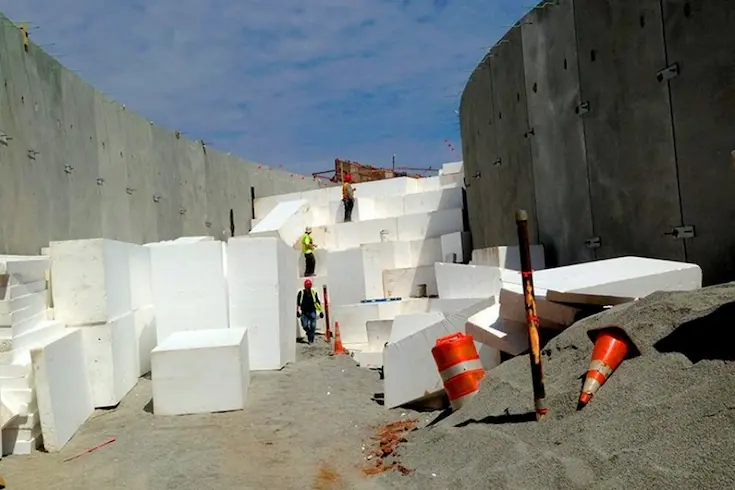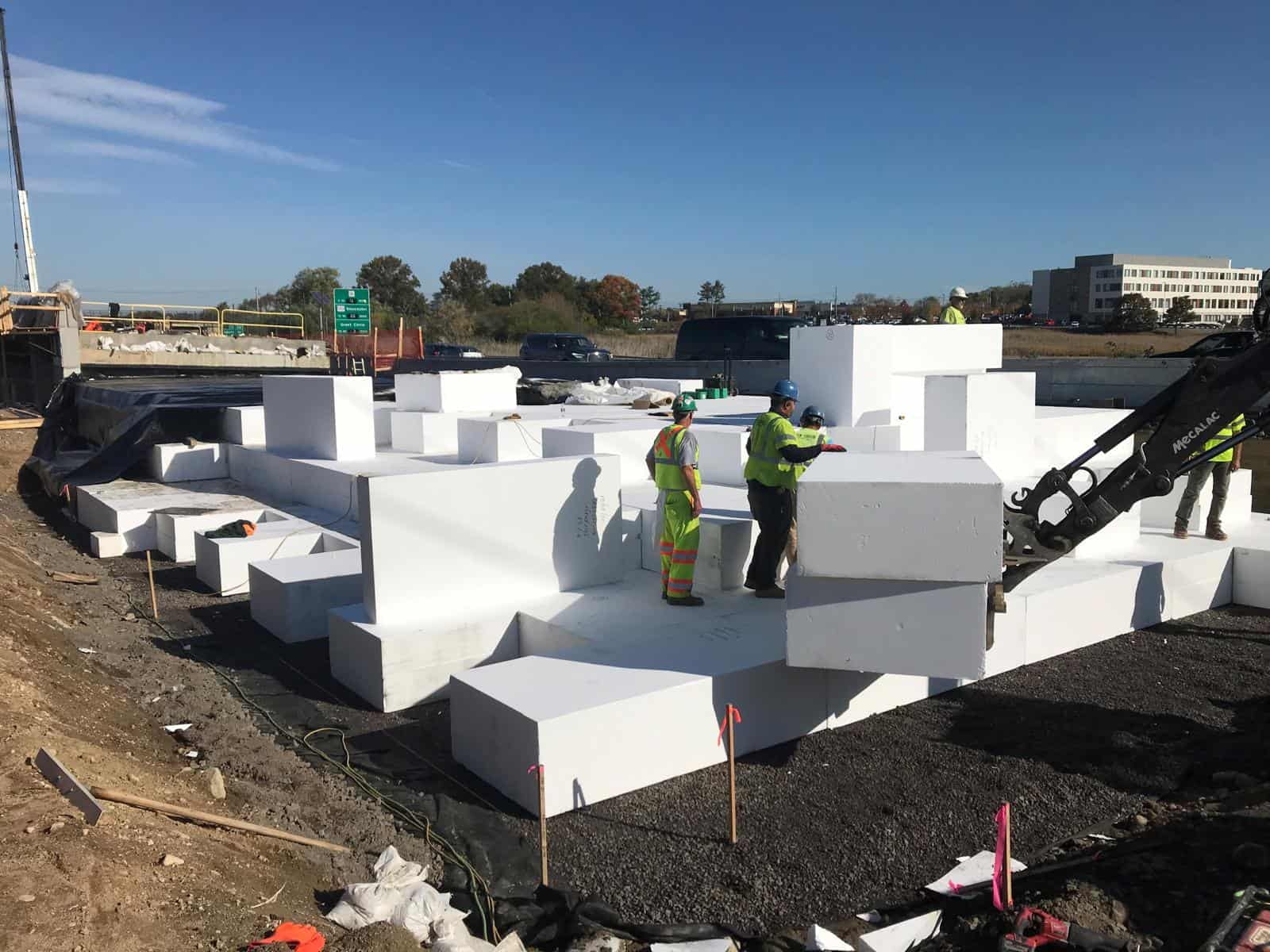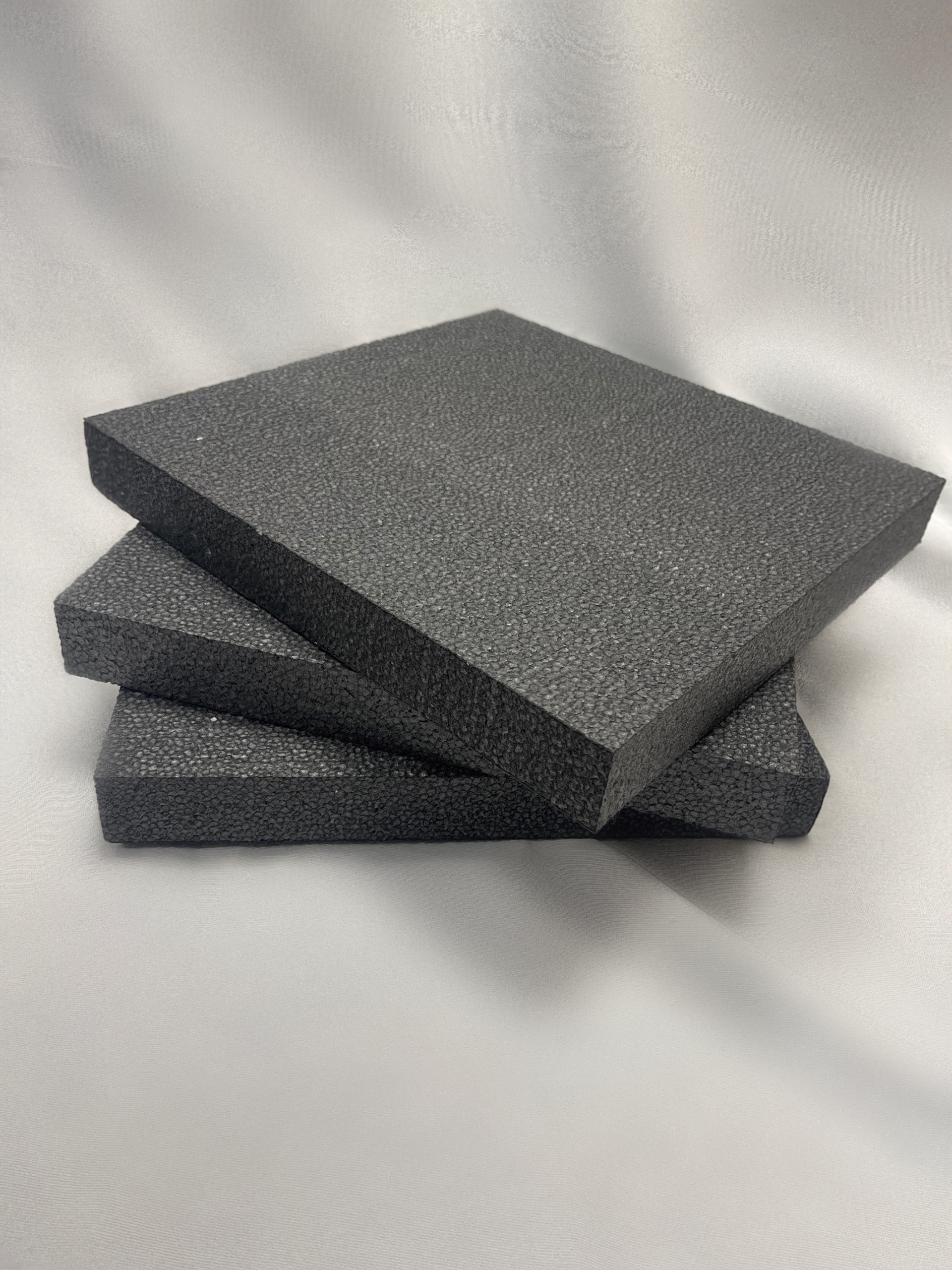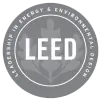Even though Expanded Polystyrene (EPS or Geofoam) has been around for more than a century, when it comes up in conversations, people instinctively think of disposable coffee cups, disposable coolers and packaging peanuts. What do Styrofoam Cups and Construction Material have in Common? Styrofoam is seldom top of mind in discussions about road construction, rooftop gardens, embankments and garden berms.
There is a significant difference between the two, however. First off, a Styrofoam coffee cup can be crushed in your hand; please don’t attempt this with an Expanded Polystyrene block, the type we manufacture. Our EPS (aka Geofoam) is so dense that it’s commonly used as foundation materials in the building of airport runways and embankments at shipping yards. The largest Geofoam project1 to date? The preparation of new Salt Lake City roadways to handle the massive traffic for the 2002 Olympics. In no way should EPS Geofoam be confused with fast food sandwich clamshell containers and other lightweight uses for Styrofoam.
Given that most lay people mistakenly refer to lightweight disposable cups, packing materials and food service containers as Styrofoam, they are of the belief that all polystyrene products fall under the same moniker. Not so, as evidenced by the following quotation from Wikipedia:
“Styrofoam is a trademarked brand of closed-cell extruded polystyrene foam currently made for thermal insulation and craft applications. It is owned and manufactured by The Dow Chemical Company.1 In the United States and Canada, the word styrofoam incorrectly refers to expanded (not extruded) polystyrene foam, such as disposable coffee cups, coolers, or cushioning material in packaging, which is typically white and is made of expanded polystyrene beads. The term is used generically although it is a different material from the extruded polystyrene used for Styrofoam insulation.
The Styrofoam brand of polystyrene foam, which is used for craft applications, can be identified by its roughness and the fact that it “crunches” when cut. Additionally, it is moderately soluble in many organic solvents, cyanoacrylate, and the propellants and solvents of spray paint. Another tradename for polystyrene foam is Thermacol, originated by BASF for expanded polystyrene.”
When performing an Internet search for EPS foam blocks, folks search under the term “styrofoam,” where they typically don’t find much about it. We recommend searching under the following terms to avoid disappointment and loss of time: Expanded Polystyrene (EPS) Form Block, Styrofoam Block, EPS Form Manufacturers, or EPS Foam Block Machinery.
Some of our most noted projects for which we have supplied Geofoam blocks to are right here in the New York, New Jersey area. We’re proud to have been a part of not only the Verrazano Bridge Toll project, but Yankee Stadium Parking Garage, Chelsea Piers following Hurricane Sandy, Stoney Brook University’s athletic compound, and are looking forward to the upcoming American Dream project. Our Geofoam products are also in use at One World Trade Center.
Because we have been in business for more than 57 years in the Tri-State area, we do our best to be involved in the development and redevelopment of infrastructure serving our greater community.
Did You Know? The state Senate in California voted to ban the sale of containers made with Styrofoam. Restaurants and shops are banned from distributing food in foam containers, so Californian’s take out (and sodas) will have to be sold in more sustainable or, ideally, reusable containers. Throughout the USA, companies such as The UPS Store are drop-off destinations and accept styrofoam containers.







